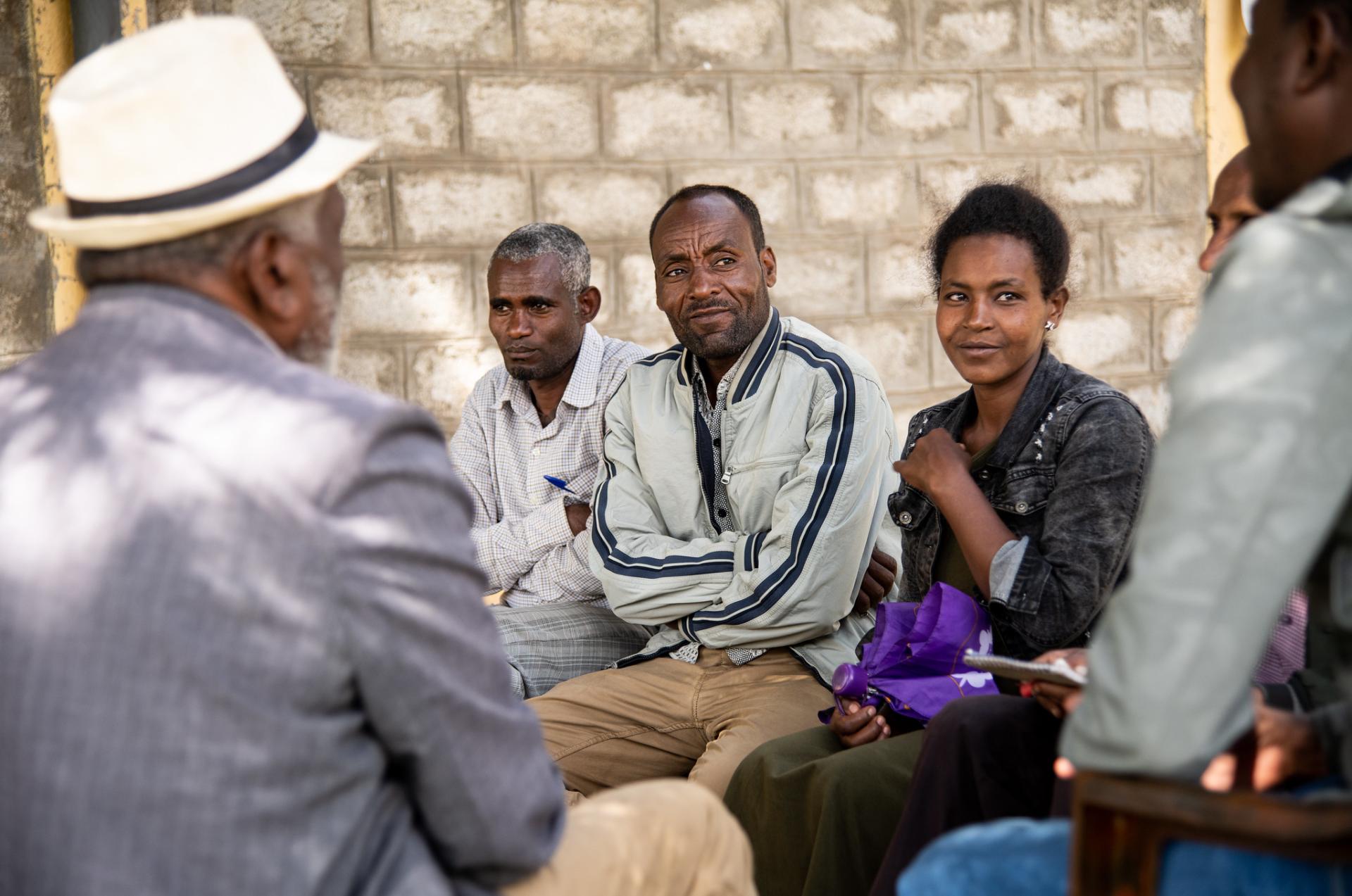Fostering evidence-based conversations about livestock: insights from the community

How do we translate complex data into productive engagement? LD4D members share their perspectives
At the opening plenary session of the recent Livestock Data for Decisions (LD4D) meeting, community leaders discussed how building connections and collaborations to improve research can foster better evidence-based engagement in the livestock sector.
WATCH THE FULL SESSION RECORDING
Julie Ojango, Senior Scientist at the International Livestock Research Institute (ILRI) and member of the LD4D Steering Committee, kicked off the discussion and set the scene by highlighting the various challenges that the livestock research community faces, such as a lack of resources for improving analytics, a lack of a shared approach to consuming data, and poor-quality data. The LD4D community provides an opportunity for researchers to address these challenges by collaborating with data users and decision-makers. But sharing data and evidence is not a straightforward process, especially when addressing thorny topics such as livestock and the environment.
Getting the full picture
Data and evidence are essential tools that can improve decision-making processes, but thoughtful engagement is required. The discussion explored how scientists and policy makers contend with accurately representing data as well as responsibly informing discussions about the role of livestock within sustainable development. While academics might have to grapple with outdated sources and inaccurate information, policymakers, civil society organisations and funders require reliable data for livestock development projects.
Critically examining data to improve decision-making in LMICs
Bernard Kimoro, a Livestock Climate Change Specialist at Kenya’s State Department of Livestock, underlined the role of data in building suitable long-term policies for the livestock sector. However, he noted that a lack of evidence on the sector’s positive contributions can lead to pressure to downsize the sector, as opposed to improving its sustainability. Kimoro also highlighted the need for data to be objective so that the evidence can support sustainable development in Kenya.
Inaccurate representations of data can also hinder the decision-making process. Often, popular facts and figures do not provide a full picture of the realities. SEBI-Livestock senior researcher, Gareth Salmon, analysed popular facts about livestock and explained why these must be approached with curiosity. For instance, it is commonly argued that livestock produces 14.5% of human induced GHG emissions, a number that was estimated in 2013 by FAO’s global modelling. However, a fact sheet published by LD4D noted that this blanket figure obscures vast differences in emissions between sources (such as the difference between cattle and poultry), and by region. While the 14.5% figure is a good starting point for discussions, we must understand the nuance behind it in order to make meaningful recommendations, he explained. Communicating more context-specific data can provide decision-makers with better insight into how emissions and their resulting impacts on the climate can be mitigated.
Similarly, facts about the impact of livestock on the environment do not usually consider that livestock systems in LMICs tend to be less efficient, and therefore have a higher emission intensity (and thus, a higher potential for improvements) than those in high-income countries. Livestock in LMICs may consume lower-quality feed, and face increased health challenges, thus reducing productivity. This leads to higher emissions per animal. This information is crucial for policymakers working to lower emissions, and scientists and decision-makers can improve evidence by expanding research to include local and regional greenhouse gas emissions beyond global data.
Fostering diverse perspectives in the livestock sector
Because conversations about the role of livestock in the environment can be polarised – veering either completely positive or completely negative – including diverse perspectives can enable a more productive discussion. Anne Mottet, Livestock Development Officer at Food and Agriculture Organization (FAO) of the United Nations noted that bringing animal nutritionists into the conversation can foster helpful new perspectives on issues like feed management and how using different types of feed or changing feed seasonally can help reduce emissions and lower waste. Including a wider range of stakeholders in the research and conversation about livestock can prevent the data and evidence from being biased.
An initiative helping to address the polarised livestock debates is TABLE, a global platform developed by Oxford University, the Swedish University of Agricultural Sciences, and Wageningen University and Research. According to Director Tara Garnett, TABLE was set up in response to observations about the different ideological positions, geographic contexts and disciplinary backgrounds that shape facts in the research about food.
TABLE is a platform that helps researchers synthesise knowledge, engage in critical conversations and encourage more informed discussions about the future of food systems, including livestock. In addition to providing evidence, the team at TABLE also critically analyse facts and statistics. They aim to bring nuance to the conversation about livestock by questioning assumptions and values underpinning different viewpoints and do so by engaging and facilitating dialogue between various stakeholders.
Improving the conversation about livestock with better data
Turning to the narrative around livestock, Shirley Tarawali, Assistant Director General at ILRI, spoke about the challenge of using evidence to ensure livestock are considered a part of the solution for sustainable development as an important part of the food system, source of income for pastoralists and a safeguard of regional biodiversity. She explained that sharing scientific facts was not always enough to change opinions, and that supporting livestock keepers to share their stories could be a more a successful strategy to reach certain audiences.
Despite the many challenges around collecting and presenting data, researchers, policymakers, and funders can and must work together to foster productive conversations around livestock, close the knowledge gaps and progress towards a more sustainable livestock sector. As a community, LD4D can help reduce the polarised debates about livestock by critically examining data and evidence and questioning the biases that might be present in existing research.
More information
Header photo: Community conversation in Doyogena, Ethiopia. Photo credit: G. Smith (ILRI). (Source)